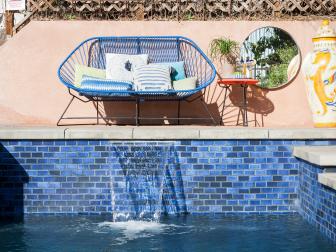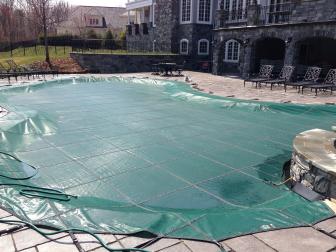Must-Do Swimming Pool Cleaning and Maintenance Tasks (and How Often You Should Do Them)
Keeping a regular cleaning and maintenance schedule will help you work less and enjoy your pool more.
You can hire a pool maintenance company to monitor your pool water so it's clean and healthy for swimming. But why spend the money when you can do much of the work yourself?
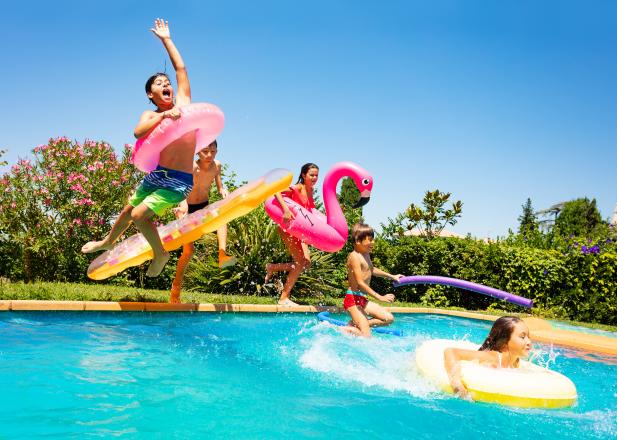
Sergey Novikov
Water Maintenance
Pool water should be clean enough that you can clearly see a coin sitting on the bottom of the pool. It should be free of cloudiness, organic matter and bacteria. Pool water evaporates and in the process, a chemical change occurs. When you add water to bring the water level up to meet the skimmers for filtering, another change occurs in the balance of chemicals. You need to consistently monitor the pH levels to keep up with these chemical changes. Maintaining a proper pH in your pool helps avoid things like stinging eyes and aids sanitizers that help to keep the water clean.
How Often Should You Test the pH?
You must test the water regularly, at least once a week. The pH will change due to sun exposure, rain, and the number of swimmers in your pool, so it is important you test the water frequently. But don't worry, you do not need a degree in chemical engineering to do this. A test kit generally includes color-coded strips to dip in the water and compare the results to the colors on the container.
Another type of testing kit requires that you fill a vial with pool water and add a few drops of liquid reagent or tablets that will color the water. You then compare your water's color to the colors on the container. With either kit, the colors will give you a reading indicating how much sanitizer, pH or alkalinity your water requires to bring it up to a healthy level.
- There are some basic rules when it comes to testing your pool water.
- First, you should always use a fresh kit every season and rinse the testing materials with pool water after testing.
- Always be sure that the filter is running for about a half hour before testing.
- Use the test kit in an area of the pool that is not near the skimmer or in a corner of the pool where the water may not be fully filtered.
- Dip the strip in the water or collect the vial of water at least a foot or more below the surface.
- Do not pour the test materials into the pool water after testing and store the kit in a dry place out of direct sunlight as the testing agents can be altered by direct sun. "If you don't do this religiously, then hire someone to do it," says Chris Polito, co-owner, Pool Environments.
What Happens if the pH Is Too High in a Pool?
Learn how to lower the pH in your swimming pool. Controlling the pH helps keep the water clear and your pool equipment running smoothly.
Adding Chemicals
It's important to follow the chemical manufacturer's instructions to the letter when handling chemicals and adding them to your pool. When you purchase your pool, the pool professionals will set you up with a system to keep the water clean and healthy, so you can rely on them to help you along the way. They want to be a partner in the health of your pool so you will keep coming back to purchase products.
Without a doubt, if you are doing the water testing yourself, then you will have to add chemicals as well based on your findings. If you are using granular products, there are generally two ways to add them to the water. The first is to add the powders directly to the water. The best way to be sure the powders are evenly dispersed is to slowly pour them into various areas of the pool. Don't just toss them in from a standing position as the wind may blow the powder back on you. Instead, bend down and gently pour small amounts into the water. The problem with this method is that the powders may take time to dissolve.
Another way to add powdered chemicals is to mix them in pool water drawn directly from the pool in a bucket you designate to be used for this purpose. This way, the powder has time to dissolve before adding it to the water. If you are using liquid chemicals, pour the solution directly into the pool water but avoid splashing.
Tablets that are placed in a floating dispenser are another way of adding chemicals. You simply place them in the device that floats around the pool dispersing the chemicals. Whichever method you use, never add the chemicals directly to the skimmer because they could be filtered out in the filter system before they get a chance to circulate into the pool.
Shocking the Pool
After a heavy rainfall, in extreme heat or after a large party where lots of people have been using the pool, you may find it necessary to shock or super-chlorinate the water. This will help eliminate any contaminants. You might notice a strong chlorine odor that is an indicator that you need to shock the water. By shocking, you are adding a larger-than-normal dose of chlorine, which will help balance the water; the odor will dissipate.
Your pool professional can help you determine if your pool needs to be shocked. Testing the water first will also help you decide if you need to super-chlorinate the pool. It will take some time for the water to return to normal chlorinated levels, so it's best to shock the pool at night after everyone is done swimming so it has time to stabilize.
Cleaning the Pool
Aside from testing and adding chemicals, it's important to keep the water free from organic matter such as leaves, grass clippings, bugs and a buildup of algae that can occur over time. These routine tasks can help you maintain a clean, healthy pool environment.
Empty Skimmer Baskets Daily
Every day, check the skimmer baskets for debris and empty them. Pull out the baskets and dump the contents, then rinse them out with pool water or a hose. This will help keep the filter and pump running properly. A clogged skimmer basket will impede the flow of water running through the system.
You should also use a pool net on a long handle to skim any debris from the surface of the water. Keep it handy, as you'll need to do this nearly every day to keep the surface clear. Do not rely on the skimmer baskets to clean the surface. Do this regularly and your pool will be inviting to use at any time.
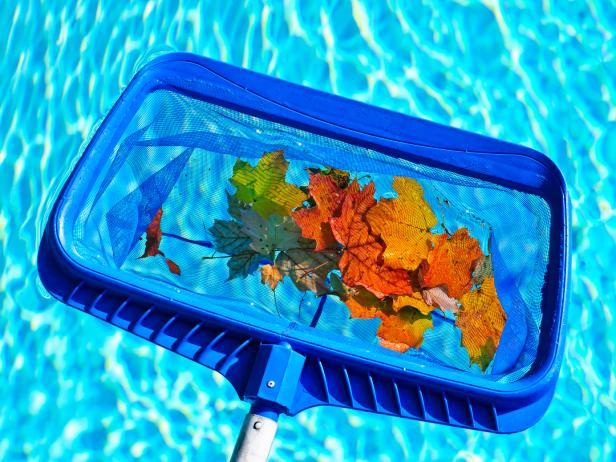
Elena Elisseeva
Vacuum Weekly
If you plan to do the routine tasks yourself rather than hiring a cleaning service to keep your pool clean then you will need to vacuum. Generally, you attach the vacuum to either the skimmer so the filter helps suck the debris through the filter, or to a garden hose that deposits the debris from the bottom into a bag that you empty. Either system works well but only if you vacuum at least once a week so you stay ahead of the job.
Vacuum the entire bottom of the pool and pick up any debris along the way. Your pool professional can help you decide which vacuum is right for you and teach you how to operate it. There are plenty of options for automatic vacuuming systems that travel along the bottom of the pool and do the cleanup for you. If you plan to go this route, ask your pool professional for the right model to handle the task for your type and size of the pool.
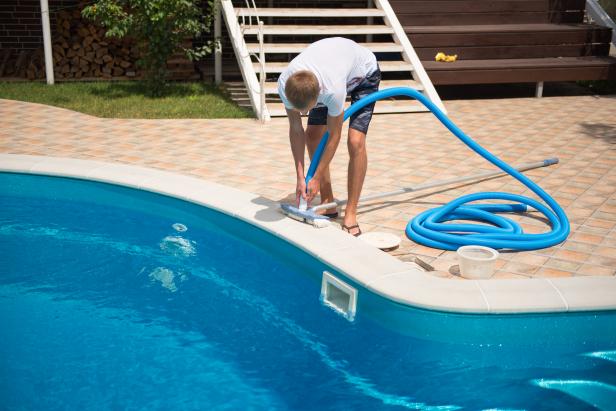
gg-foto
Brush the Sides Every Other Week
It's necessary to brush the liner or tiles on a concrete pool at least every two weeks to keep algae from building up above and just below the waterline. To do this, you'll need a tile brush and specialized pool tile cleaner that works well on vinyl, tiles and fiberglass pools. Apply the cleaner and brush above the surface of the pool walls until clean. It's not recommended that you use household detergent for this job, as you don’t want those foreign chemicals in your pool.
How to Winterize Above-Ground and In-Ground Pools
Learn how to prep and protect your swimming pool and its equipment from freezing temperatures during the off-season.






